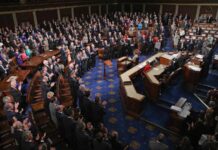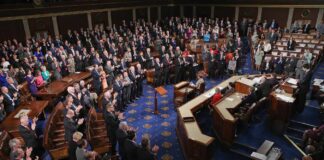July 8, 2019
 The enactment of laws regulating the use of cannabis by adults is associated with short-term declines in self-reported marijuana use by young people, according to findings published today in the journal JAMA Pediatrics.
The enactment of laws regulating the use of cannabis by adults is associated with short-term declines in self-reported marijuana use by young people, according to findings published today in the journal JAMA Pediatrics.
A team of researchers from Montana State University, the University of Oregon, the University of Colorado, and San Diego State University assessed teen marijuana use rates, as reported by the Youth Risk Behavior Survey, in states that had legalized either the medical or the recreational use of cannabis.
After adjusting for individual- and state-level covariates, authors reported that states with “recreational marijuana laws were associated with an eight percent decrease in the odds of marijuana use and a nine percent decrease in the odds of frequent marijuana use.” By contrast, states with medical cannabis laws only were not associated with any statistical changes in youth use.
They concluded: “Consistent with the results of previous researchers, there was no evidence that the legalization of medical marijuana encourages marijuana use among youth. Moreover, the estimates reported … showed that marijuana use among youth may actually decline after legalization for recreational purposes. This latter result is consistent … with the argument that it is more difficult for teenagers to obtain marijuana as drug dealers are replaced by licensed dispensaries that require proof of age.”
An abstract of the study, “Association of marijuana laws with teen marijuana use,” appears online here. Additional information is available from the NORML fact-sheet, “Marijuana Regulation and Teen Use Rates,” here.











